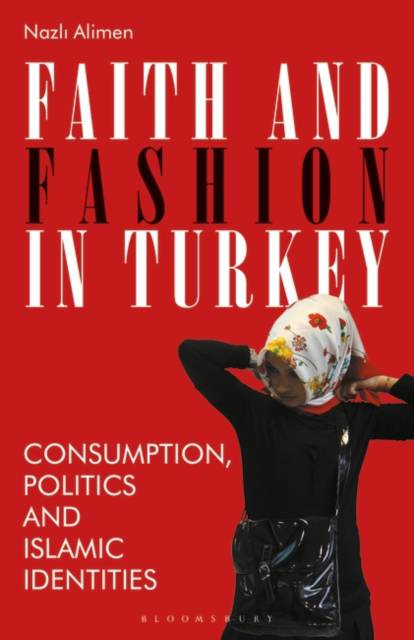
- Afhalen na 1 uur in een winkel met voorraad
- Gratis thuislevering in België vanaf € 30
- Ruim aanbod met 7 miljoen producten
- Afhalen na 1 uur in een winkel met voorraad
- Gratis thuislevering in België vanaf € 30
- Ruim aanbod met 7 miljoen producten
Omschrijving
Turkey has witnessed remarkable sociocultural change under the regime of Recep Tayyip Erdogan and his Justice and Development Party (AKP), particularly regarding its religious communities. As individuals with pious identities have increasingly gained access to state power and accumulated economic influence, so religious appearances and practices have become more visible in Turkey's `secular' public spaces. More than this, consumption practices have changed and new Islamic and Islamist identities have emerged.
This book investigates three of the most widespread faith-inspired communities in Turkey: the Gulen, Suleymanli and the Menzil. Nazli Alimen compares these communities, looking at their diverse interpretations of Islamic rules related to the body and dress, and how these different groups compete for power and control in Turkey. In tracing what motivates consumption practices, the book adds to the growing interest in the commercial aspects of modest and Islamic fashion. It also highlights the importance of clothing and bodily rituals (such as veiling, grooming and food choices) for the formation of community identities. Based on ethnographic research, Alimen analyses the relationship between the marketplace and religion, and shows how different communities interact with each other and state institutions. Of particular note are the varied expressions of Islamic masculinities and femininities at play. Appealing to a cross-disciplinary readership, the book will be relevant for scholars within Turkish Studies, Gender Studies, Islamic Studies, Fashion, Consumption Studies, Sociology of Religion and Middle Eastern Studies.
Specificaties
Betrokkenen
- Auteur(s):
- Uitgeverij:
Inhoud
- Aantal bladzijden:
- 336
- Taal:
- Engels
- Reeks:
Eigenschappen
- Productcode (EAN):
- 9781350129320
- Verschijningsdatum:
- 22/08/2019
- Uitvoering:
- Paperback
- Formaat:
- Trade paperback (VS)
- Afmetingen:
- 140 mm x 216 mm
- Gewicht:
- 376 g

Alleen bij Standaard Boekhandel
Beoordelingen
We publiceren alleen reviews die voldoen aan de voorwaarden voor reviews. Bekijk onze voorwaarden voor reviews.







